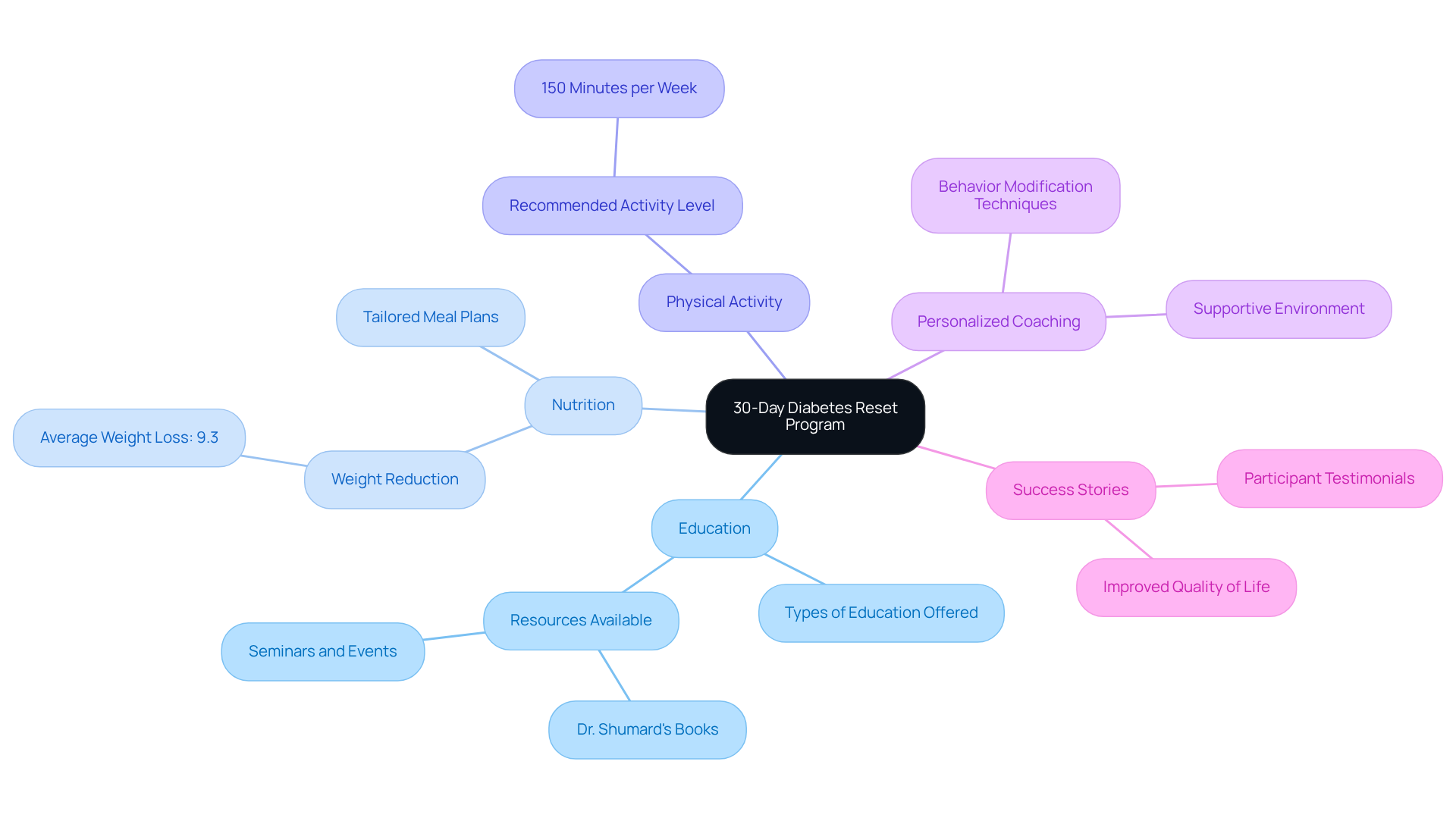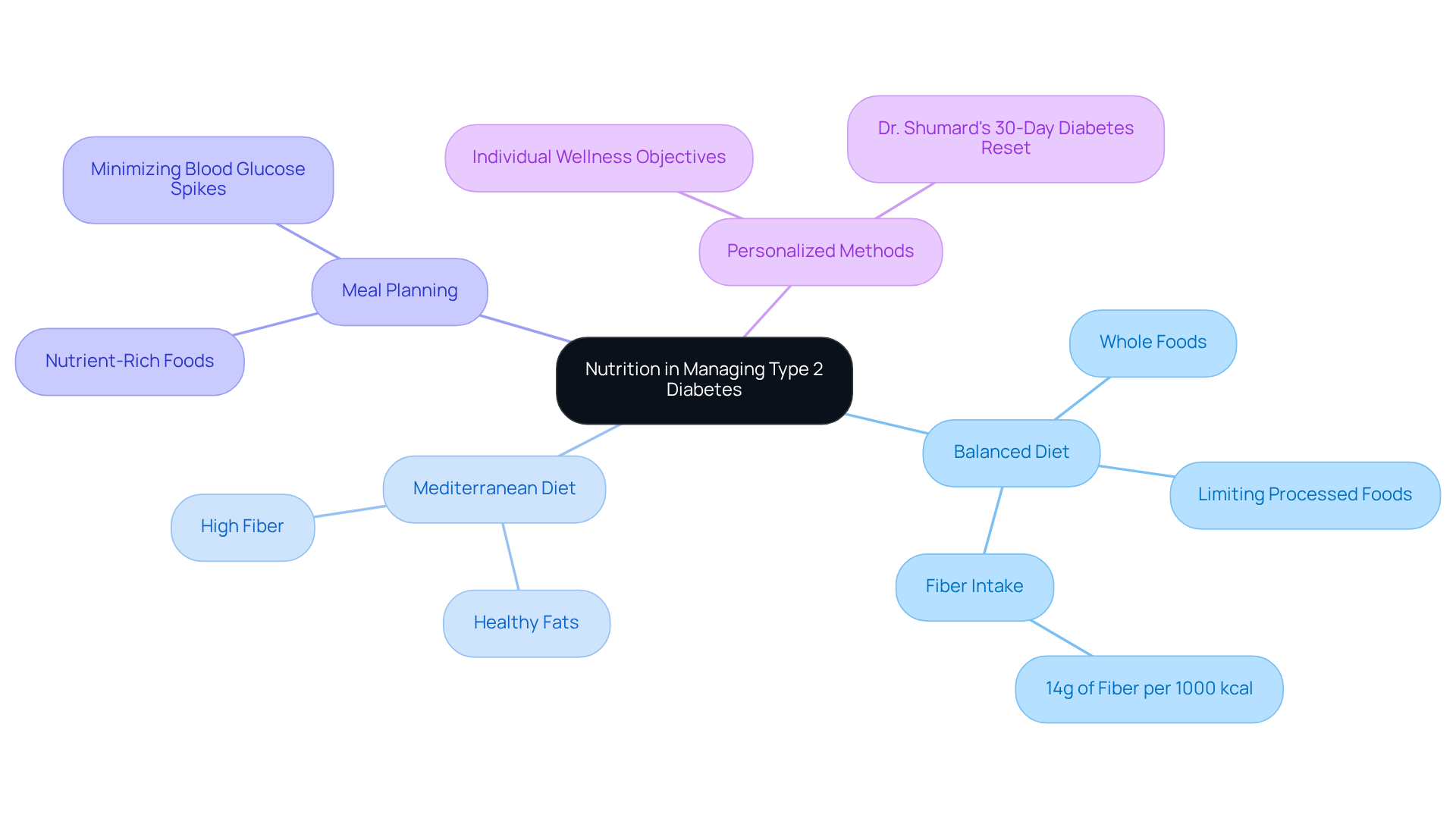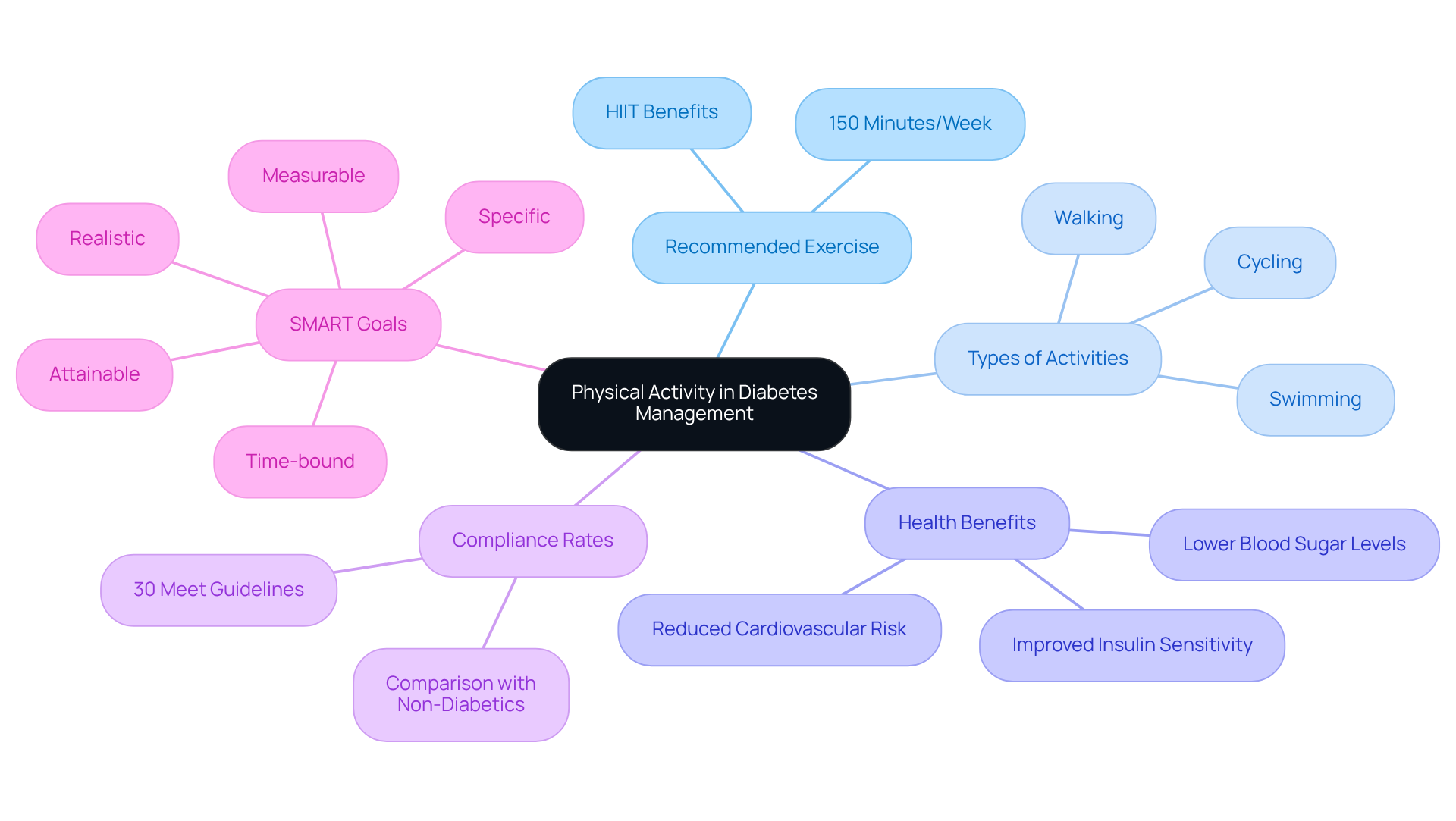Overview
The article titled “7 Interesting Facts About Type 2 Diabetes You Should Know” is designed to support readers in understanding and managing their condition more effectively. It’s important to recognize that many individuals face challenges when dealing with type 2 diabetes, and this article aims to provide valuable insights that can empower them. While the specific facts may not be detailed, the surrounding context highlights the crucial role of education, nutrition, and physical activity in diabetes management. Many patients find that informed lifestyle choices can lead to improved health outcomes, fostering a sense of control and well-being.
As you explore the key aspects of type 2 diabetes, consider how these insights can resonate with your personal journey. Acknowledging the struggles you face is the first step toward making positive changes. By focusing on education and understanding, you can cultivate a healthier lifestyle that truly supports your needs. Remember, you’re not alone in this journey, and small, informed choices can make a significant difference in your health.
This article encourages you to reflect on your current habits and consider the potential benefits of the 30-Day Diabetes Reset program. Embracing a holistic approach to managing diabetes can not only enhance your understanding but also improve your overall quality of life. Together, let’s take steps toward a healthier future, one informed decision at a time.
Introduction
Understanding type 2 diabetes is crucial in today’s health landscape, where millions grapple with its complexities. Many individuals face daily challenges that can feel overwhelming. This article delves into seven intriguing facts that illuminate the condition, offering insights designed to empower you to take charge of your health.
It’s important to recognize that with so much information available, discerning the most impactful strategies for effective management and lifestyle changes can be daunting. Together, we can explore these insights and find a path forward.
Integrative Wellness Center: 30-Day Diabetes Reset Program for Lasting Health Transformation
Are you feeling overwhelmed by the challenges of managing diabetes? The 30-Day Diabetes Reset Program at the Integrative Wellness Center offers a compassionate approach to help you reclaim your health. This transformative initiative integrates education, nutrition, and physical activity, fostering sustainable lifestyle changes that can truly make a difference in your life.
Many participants find that exploring interesting facts about type 2 diabetes and the underlying causes of type 2 conditions, along with personalized coaching, empowers them to modify their behaviors effectively. Imagine having a tailored meal plan, exercise routine, and stress management techniques designed just for you. This program emphasizes complete wellness, which not only aids in managing blood sugar levels but also enhances your overall well-being.
Success stories from past participants highlight the initiative’s effectiveness, showcasing substantial improvements in their quality of life. Have you ever wondered how others have successfully navigated their diabetes journey? Recent studies support the positive impact of such management initiatives, particularly in San Diego, where individualized coaching has led to improved success rates in achieving lasting wellness changes.
According to the CDC, adopting lifestyle modifications can reduce your risk of type 2 blood sugar issues, which aligns with interesting facts about type 2 diabetes, by 58%. Individuals in similar programs have reported an average weight reduction of 9.3%. Dr. Jason Shumard emphasizes, ‘By providing patients with actionable insights and practical tools, the center fosters an environment where individuals can reclaim their health and well-being.’
If you’re contemplating lifestyle changes, it’s important to recognize that seeking advice from healthcare professionals about local disease prevention programs can be a crucial step. You deserve the support and guidance to embark on this journey towards a healthier you.
The Role of Nutrition in Managing Type 2 Diabetes
Nutrition plays a vital role in managing type 2 conditions, and it’s important to recognize that a balanced diet centered on whole foods—such as fruits, vegetables, whole grains, and lean proteins—can be essential for blood sugar regulation. Many patients find that limiting processed foods high in sugars and unhealthy fats significantly enhances glycemic control. The Mediterranean Diet, celebrated for its focus on healthy fats and high fiber intake, has shown promising results in reducing cardiovascular risk and stabilizing blood glucose levels.
Meal planning emerges as an invaluable approach, allowing individuals to prioritize nutrient-rich foods while minimizing blood glucose spikes. It’s recommended that patients aim for at least 14 grams of fiber for every 1000 kcal, a crucial component for effective diabetes management. Understanding portion sizes and the glycemic index of various foods further empowers individuals to make informed dietary choices.
Furthermore, personalized dietary methods are essential, as they consider individual wellness objectives and preferences. Dr. Shumard’s 30-Day Diabetes Reset program provides practical tools and knowledge to support these dietary strategies. By focusing on these nutritional approaches, patients can significantly enhance their management of blood sugar levels and improve their overall health outcomes. Remember, you are not alone on this journey, and with the right support and strategies, positive changes are within reach.
Physical Activity: A Key Component in Diabetes Management
Managing type 2 diabetes can be challenging, but regular physical activity is a vital part of effective management. Engaging in at least 150 minutes of moderate-intensity exercise each week can significantly enhance insulin sensitivity and lower blood sugar levels. Whether it’s walking, swimming, or cycling, there are excellent options available for everyone, regardless of fitness level. It’s important to recognize that research shows exercise durations exceeding 150 minutes per week are linked to even greater reductions in hemoglobin A1c levels, with a mean change of -0.89%. Additionally, incorporating strength training exercises at least twice a week can further improve metabolic health and boost insulin sensitivity.
Finding activities that you enjoy is crucial for maintaining consistency in your exercise routine. Many patients find that when they engage in enjoyable physical activities, they are more likely to stick with their routines. Yet, it’s concerning that only 30% of individuals facing blood sugar issues comply with the recommended physical activity guidelines. Furthermore, high-intensity interval training (HIIT) has emerged as an effective method for managing blood sugar levels. A small trial indicated that participating in HIIT twice a week led to a reduction in abdominal fat by 8.3% and visceral fat by 24.2%.
By incorporating physical activity into your daily life, you can significantly improve your blood sugar management and overall health. Setting specific, measurable, attainable, realistic, and time-bound (SMART) goals can be a helpful strategy to sustain new fitness behaviors and prevent relapses. As health organizations emphasize, “Any physical activity is better than none at all, but most health organizations say you need a minimum of 150 minutes of activity per week to reap significant results.” Ultimately, making exercise a regular part of your life not only enhances diabetes outcomes but also contributes to a healthier lifestyle.
Conclusion
Understanding type 2 diabetes is crucial for effective management and improved health outcomes. It’s important to recognize that a comprehensive approach—encompassing education, nutrition, and physical activity—can truly make a difference. This integration fosters sustainable lifestyle changes, empowering you to take control of your diabetes journey.
Many patients find that proper nutrition, such as adopting a balanced diet rich in whole foods, plays a vital role in blood sugar regulation. Coupled with regular physical activity, these strategies can significantly enhance insulin sensitivity and overall health. Success stories from programs like the 30-Day Diabetes Reset highlight the transformative potential of personalized coaching and support, underscoring the effectiveness of evidence-based practices in managing type 2 diabetes.
Ultimately, the journey towards better health and diabetes management begins with informed choices and proactive steps. Embracing nutrition and exercise as foundational components not only aids in controlling blood sugar levels but also contributes to a higher quality of life. Individuals are encouraged to seek guidance from healthcare professionals and consider programs designed to support their unique needs, paving the way for lasting wellness.
Frequently Asked Questions
What is the 30-Day Diabetes Reset Program at the Integrative Wellness Center?
The 30-Day Diabetes Reset Program is a compassionate initiative designed to help individuals manage diabetes through education, nutrition, and physical activity, fostering sustainable lifestyle changes for lasting health transformation.
What components are included in the program?
The program includes personalized coaching, tailored meal plans, exercise routines, and stress management techniques, all aimed at enhancing overall wellness and effectively managing blood sugar levels.
How does the program support participants in managing their diabetes?
Participants learn about type 2 diabetes and its underlying causes, which empowers them to modify their behaviors. The program emphasizes complete wellness, helping individuals improve their quality of life through informed lifestyle changes.
What evidence supports the effectiveness of the program?
Success stories from past participants demonstrate substantial improvements in their quality of life. Additionally, studies show that individualized coaching has led to improved success rates in achieving lasting wellness changes, particularly in San Diego.
How can lifestyle modifications impact diabetes risk?
According to the CDC, adopting lifestyle modifications can reduce the risk of type 2 diabetes by 58%. Participants in similar programs have also reported an average weight reduction of 9.3%.
What is the role of healthcare professionals in this journey?
Seeking advice from healthcare professionals about local disease prevention programs is crucial for individuals contemplating lifestyle changes, as they provide the necessary support and guidance for a healthier life.


